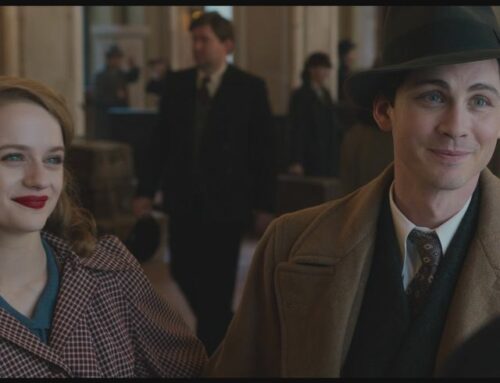There is one reason to see MY WEEK WITH MARILYN and that is to witness the wonder that is Michelle Williams performance as THE blonde sex symbol of all time Marilyn Monroe. Williams performance is nothing short of miraculous and may just win her this season’s Oscar for BEST ACTRESS. I resisted the impersonation at first. Little did I know what I was in for.
I have always adored Marilyn Monore. I remember where I was standing when I first heard she had committed suicide. There was something about the way my mother and her girlfriend were talking about her– in sad hushed tones–after they heard the news that afternoon. As they they stood there in their high heels and pencil skirts–both secretaries– I saw how they loved her… her sweetness, her sudden sorrowful ending, how wounded, how beautiful…
She WAS beautiful. It wasn’t the make-up, or the way she “whisper-talked.” Her skin glowed. NO ONE else could be that lovely and luminous– not Michelle Williams. But then as I watched, I slowly found myself succumbing to the magic of a great actress. I stopped noticing her slightly imperfect features, and less than voluptuous body– filled out with padding, I’ve learned. Michelle was somehow physically transformed by rendering the essence of the troubled star during one week in her life, as recollected by a lovestruck young aristocrat–Colin Clark (Eddie Redmayne) who had the extraordinary good fortune of landing on a movie set with Monroe and Laurence Olivier as they filmed THE PRINCE AND THE SHOWGIRL.
I remember that film. Monroe was gorgeous in period costume, her sensuality decimating the tightly-laced corsets, her insecurities doing the same to the schedule. Marilyn was never on time to the set, and when she appeared, she came slavishly attached to her acting coach Paula Strasberg–played by a pruney, bespectacled Zoe Wannamaker. Olivier grew exasperated at her lack of discipline, innumerable takes, and offset breakdowns; Kenneth Branagh plays him to priggish perfection in a rare and hilarious performance. By contrast, the daunting Dame Sybil Thorndike–Judi Dench–proved consummately compassionate onset, recognizing Monroe’s tardiness for what it was– fear, not Hollywood arrogance.
But all of this is secondary; the film doesn’t really tell us much about Marilyn that we didn’t already know: that her marriage to Arthur Miller was falling apart, that she took too many pills and had the wrong people around her. That she couldn’t walk down a street let alone a college campus without changing the barometric pressure. That she was difficult.
What this film does, is give us a chance to revel in Marilyn herself. I found myself staring. I thought I was looking at Marilyn. The way she moved, the tilt of her head, the curve of her back and roundness of her shoulders. Williams even evoked the back of Marilyn’s head! The playful cadence of her voice– not the breathy caricature that people imitate or that she cultivated, but what sounds like the live rhythm, pitch, and naturalness of what her real voice might have sounded like when she wasn’t “on.”
And the effect of her flesh on camera, at once tactile and translucent.
But this is more than a physical performance. There’s a light that seemed to come from Monroe–and Williams captures this– the light in her eyes, her gentleness, and her almost desperate joy in just cutting loose– jumping in a river, or hiding in the back of a limo. And the sheer exhaustion and loneliness of the sweet soul underneath.
Williams makes us feel as though we have stolen some real moments with Marilyn– whether or not they actually happened this way, though the outlines are apparently true. Michelle Williams has evoked something astonishingly truthful about one of the most unique and alluring figures of our times, in spite of what we believe we already know about her. This is a magnificent performance. I think it might have startled Marilyn herself.
Williams has captured the uncapturable.






Leave A Comment
You must be logged in to post a comment.